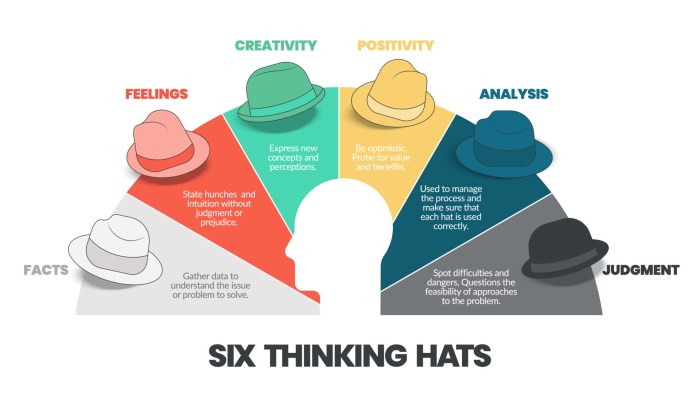How love is all about sacrifice ruins our love lives. We’re often told that true love demands sacrifice, that giving up something for your partner is a hallmark of commitment. But what if this idea is fundamentally flawed? This exploration dives deep into the complexities of sacrifice in relationships, revealing how it can breed resentment, conflict, and ultimately, destroy the very love it’s intended to protect.
We’ll unpack the different types of sacrifices, the misconceptions surrounding them, and offer healthy alternatives for building a stronger, more fulfilling connection.
From career choices to personal passions, the pressure to sacrifice for a partner can take a heavy toll. We’ll examine the detrimental impact of perceived sacrifice on emotional well-being, highlighting how it can lead to feelings of imbalance, guilt, and ultimately, dissatisfaction. This isn’t about condemning sacrifice altogether, but about understanding when it becomes a harmful pattern, and how to replace it with healthy compromise and shared responsibility.
Defining “Sacrifice” in Love

The notion of sacrifice in romantic relationships is often romanticized, portrayed as a noble act of devotion. However, a closer examination reveals that the concept of sacrifice, when misconstrued, can significantly damage a relationship, leading to resentment and unhappiness. It’s crucial to understand the nuances of sacrifice, distinguish it from healthy compromise, and recognize the influence of cultural and societal pressures on this complex dynamic.The perception of sacrifice in love is often subjective and colored by individual experiences and expectations.
What one person views as a selfless act of love, another may perceive as an obligation or a sign of imbalance in the relationship. Understanding the different types of sacrifices and the underlying motivations behind them is key to navigating this delicate aspect of romantic partnerships.
Types of Sacrifices in Relationships
Different types of sacrifices exist in romantic relationships. These range from seemingly minor adjustments to significant lifestyle changes. Examples include:
- Career Choices: Choosing a career path that offers less financial security or career advancement opportunities to support a partner’s ambitions. For example, one partner might relocate to a less desirable city or take a lower-paying job to accommodate the other’s professional goals.
- Personal Interests: Giving up or reducing participation in hobbies, activities, or social circles that bring personal fulfillment to prioritize the relationship. For instance, someone might stop pursuing a passion for music to spend more time with their partner or take care of their family.
- Time Commitments: Reducing personal time for social activities or self-care to dedicate more time to a partner, such as foregoing a night out with friends to spend time with a partner or family.
Misconceptions Surrounding Sacrifice
Several misconceptions surround the concept of sacrifice in love. One prevalent misconception is that sacrifice equates to a superior form of love. Another is the belief that sacrificing one’s needs and desires is essential for a successful relationship. This often leads to individuals feeling resentful and unheard, as their needs and desires are ignored or suppressed in favor of perceived relationship needs.
Cultural and Societal Influences
Cultural and societal expectations play a significant role in shaping the perception of sacrifice in relationships. For instance, in some cultures, women may be expected to prioritize the needs of their partner and family over their own ambitions, while in others, men may be expected to take on the primary financial burden of the family. These expectations can create a framework of perceived sacrifices that may not be truly beneficial or fair for either partner.
Healthy Compromise vs. Unhealthy Sacrifice
| Characteristic | Healthy Compromise | Unhealthy Sacrifice |
|---|---|---|
| Motivation | Mutual agreement and consideration of both partners’ needs and desires. | Feeling pressured or obligated to meet another’s needs without regard to one’s own well-being. |
| Communication | Open and honest dialogue about needs and desires. | Suppression of needs and desires, leading to resentment and potential conflict. |
| Impact on Individuals | Both partners feel valued and supported. | One partner feels undervalued and resentful, potentially leading to long-term issues. |
| Relationship Dynamics | Relationship thrives on mutual respect and consideration. | Relationship suffers from imbalance and potential power dynamics. |
Healthy compromise is about finding solutions that benefit both partners, while unhealthy sacrifice is about one partner consistently putting the other’s needs ahead of their own.
The Impact of Perceived Sacrifice on Relationships
The idea of sacrifice in love, while often romanticized, can be a double-edged sword. While a willingness to compromise and support one another is crucial for any healthy relationship, the expectation of constant sacrifice can breed resentment and ultimately damage the connection between partners. This exploration delves into the detrimental effects of perceived sacrifice, highlighting how it can negatively impact emotional well-being and create an imbalance in the relationship dynamic.Relationships built on the foundation of sacrifice often fail to acknowledge the reciprocal nature of love.
This imbalance, while potentially well-intentioned, can lead to a cycle of unhappiness for both parties. The pressure to constantly give and the feeling of not receiving enough in return can create a sense of unease and discontent. This dynamic, often rooted in differing perceptions of what constitutes a fair contribution, can significantly impact the long-term health of the relationship.
The Emotional Toll of Perceived Sacrifice, How love is all about sacrifice ruins our love lives
The constant expectation of sacrifice can take a significant toll on an individual’s emotional well-being. Feelings of inadequacy and a lack of self-worth can arise when one feels obligated to continuously compromise their needs and desires for the sake of the relationship. This pressure can lead to chronic stress, anxiety, and ultimately, a sense of being undervalued and unappreciated.
Sacrifice, when perceived as one-sided, can create a sense of burden and obligation, diminishing the joy and fulfillment that should be inherent in a loving partnership.
Resentment and Guilt in Sacrificial Relationships
The perception of sacrifice, especially when it feels unbalanced, often fuels resentment. When one partner consistently feels they are giving more than they are receiving, a sense of injustice can develop. This can manifest as subtle irritations, growing dissatisfaction, and ultimately, open conflict. This resentment can fester and damage the emotional connection between partners.Accompanying resentment is often a heavy burden of guilt.
The individual who feels they are receiving more may feel guilty for not reciprocating the perceived sacrifice. This internal conflict can further erode trust and intimacy within the relationship.
Imbalance and Unhappiness
Relationships where sacrifice is a significant factor often exhibit an imbalance in power dynamics. The individual who feels they are constantly sacrificing may become dependent on the other partner, leading to feelings of vulnerability and powerlessness. This dependency can stifle personal growth and create a sense of stagnation within the relationship.Conversely, the individual who appears to benefit from the sacrifice may develop a sense of entitlement or a lack of empathy for the other’s needs.
This disparity in perceived contributions often leads to unhappiness and ultimately, the dissolution of the relationship.
Conflict and Dissatisfaction: Examples
Relationships where one partner consistently sacrifices their personal goals or desires for the sake of the relationship can lead to significant conflict. Consider a situation where one partner prioritizes their career and sacrifices time with their significant other, only to find that the other partner does not reciprocate in a meaningful way. This lack of balance can result in resentment, dissatisfaction, and ultimately, the breakdown of the relationship.Another example could be a couple where one partner consistently takes on more household responsibilities, while the other consistently fails to contribute, resulting in feelings of imbalance and resentment.
This imbalance can manifest in arguments, avoidance, and a general sense of dissatisfaction.
Comparing Sacrificial and Non-Sacrificial Relationships
Relationships that prioritize mutual respect and shared responsibility often exhibit significantly less conflict and greater overall satisfaction. In these relationships, partners feel supported and empowered to pursue their individual goals while still maintaining a strong connection. They understand that love is a two-way street, and that a healthy relationship requires shared effort and appreciation.Conversely, relationships where sacrifice is a dominant factor often display higher levels of conflict and dissatisfaction.
The imbalance in perceived contributions can create a sense of unease and ultimately damage the connection between partners. It is crucial to recognize the importance of reciprocity in a healthy relationship.
Unhealthy Patterns of Sacrifice
The concept of sacrifice in love, while seemingly noble, can quickly descend into unhealthy territory. When one partner consistently prioritizes the other’s needs above their own, a pattern of imbalance can emerge, stifling individual growth and potentially damaging the relationship. This dynamic often masks underlying issues and creates a cycle of resentment and unhappiness. Understanding the common unhealthy patterns of sacrifice is crucial to recognizing when a relationship is veering towards a destructive path.Unhealthy sacrifice in relationships frequently stems from a desire to please, fear of conflict, or a deep-seated need to be needed.
These well-intentioned motivations, however, can morph into a damaging dependence that fails to support the emotional well-being of either partner. This isn’t about occasional acts of generosity; it’s about a continuous and often unspoken agreement to consistently put one’s needs on the back burner.
Common Unhealthy Patterns of Sacrifice
These patterns frequently involve one partner consistently sacrificing their needs, desires, and personal well-being to meet the perceived needs of the other. This often stems from a fear of upsetting the other person, a desire to maintain harmony, or a misinterpretation of love as constant appeasement.
- Sacrifice for Validation: One partner might consistently prioritize the other’s opinions and desires, even if it means compromising their own values or goals. This can be rooted in a need for external validation and a fear of rejection. For instance, a person might constantly change their plans to accommodate a partner’s whim, even if it means missing out on personal activities they enjoy.
- Sacrifice Driven by Guilt: This often involves a sense of obligation, where one partner feels they owe the other something. This may stem from past unresolved conflicts or perceived past wrongs. A partner might consistently put up with hurtful behavior, believing they deserve it or that the sacrifice will somehow mend the relationship.
- Sacrifice as a Means of Control: This pattern is often subtle and manipulative. One partner might sacrifice their needs to maintain control over the other. This can involve minimizing their own feelings and experiences to avoid conflict. For example, a partner might suppress their frustration with a specific behavior or demand to maintain a harmonious facade, though it ultimately undermines their emotional needs.
- Sacrifice Out of Fear of Abandonment: This is a significant pattern, often stemming from past experiences of abandonment or insecurity. A partner might consistently sacrifice their needs to avoid a perceived threat of losing the other person, even if the sacrifices cause considerable emotional distress.
Warning Signs of Unhealthy Sacrifice
Constant compromises and sacrifices, where one partner consistently puts the other’s needs before their own, can be a clear warning sign of an unhealthy relationship dynamic. These sacrifices should be accompanied by a clear awareness of the potential risks and negative consequences.
- Constant Resentment: A feeling of being taken advantage of or ignored is a key indicator. If one partner consistently feels unheard or unseen, resentment will build.
- Lack of Personal Growth: When a relationship consistently demands one partner to sacrifice their own ambitions and desires, personal growth can be severely hindered.
- Diminished Self-Esteem: Consistent sacrifice can chip away at a partner’s self-worth, leading to feelings of inadequacy and powerlessness.
- Communication Breakdown: Unhealthy sacrifice can often lead to a breakdown in communication, as one partner feels unable to express their needs or concerns without fear of upsetting the other.
Expressions of Feeling Sacrificed
Recognizing how individuals express feeling sacrificed is crucial for understanding and addressing this issue in a relationship.
| Expression | Description |
|---|---|
| Passive-Aggressive Behavior | Indirectly expressing frustration or anger through subtle actions or avoidance. |
| Withdrawal | Emotional distancing or disengagement as a way to cope with the feeling of being sacrificed. |
| Anger and Resentment | Direct expression of negative emotions towards the partner. |
| Depression and Anxiety | Internalizing the feelings of being sacrificed, leading to mental health issues. |
| Chronic Fatigue | Feeling depleted and overwhelmed due to the constant effort of accommodating another’s needs. |
Healthy Alternatives to Sacrifice

Love shouldn’t feel like a constant act of giving up. A healthy relationship thrives on a foundation of mutual respect, support, and shared responsibility, not on one partner consistently sacrificing their needs and desires. Instead of viewing love through the lens of sacrifice, we can cultivate a more balanced and fulfilling connection.A healthy relationship is a partnership where both individuals feel valued, respected, and empowered.
Constantly sacrificing for someone in a relationship, while seemingly romantic, often undercuts the foundation of a healthy love life. It’s like trying to build a house on shifting sand. Instead of focusing on mutual give and take, we often end up feeling depleted and resentful. Perhaps if we prioritized self-care and focused on activities that nurture our well-being, like starting our days with intention and purpose , we’d be better equipped to build a stronger, more balanced relationship, where sacrifice isn’t the sole defining factor.
Ultimately, love should be a partnership, not a one-sided obligation.
It’s a space where both partners contribute actively to the well-being of the relationship and feel that their own needs are being considered. This approach avoids the pitfalls of resentment and imbalance that often arise from a one-sided focus on sacrifice.
Mutual Respect and Support
Mutual respect is paramount in a healthy relationship. It involves acknowledging and valuing each other’s opinions, feelings, and boundaries. Support is another crucial element, involving encouragement, empathy, and understanding during both joyful and challenging times. This is not about enabling harmful behaviors but rather offering a safe and encouraging environment for personal growth. When both partners feel respected and supported, they are more likely to contribute positively to the relationship and feel a sense of security and belonging.
Shared Responsibility
Relationships aren’t one-sided endeavors. Shared responsibility fosters a sense of partnership and equality. It means both partners actively participate in household tasks, childcare (if applicable), financial management, and other aspects of daily life. This approach acknowledges that both individuals bring unique skills and perspectives to the table and that the success of the relationship depends on both contributing their fair share.
This division of labor prevents one partner from feeling overburdened or resentful.
Compromise as a Healthy Alternative
Compromise is a crucial skill in any relationship. It’s about finding solutions that meet the needs of both partners, not about one person always giving in. Compromise demonstrates a willingness to adapt and find middle ground, ensuring both parties feel heard and valued. This is not about surrendering one’s values or needs but rather finding creative solutions that respect everyone’s perspective.
Examples of Healthy Compromises
- Scheduling Flexibility: Instead of one partner consistently sacrificing their social life to accommodate the other, they can discuss and agree on a schedule that allows for both personal time and quality time together. For example, one partner might suggest having a date night once a week while the other suggests spending one evening a week with their friends.
- Household Chores: A couple can create a chore chart or system where tasks are divided based on individual strengths and preferences, ensuring that each partner feels responsible for their part of the home upkeep. This avoids one person feeling burdened by all the tasks.
- Financial Decisions: When making financial decisions, couples can sit down together to discuss their needs and goals. They can agree on a budget that reflects both their individual and joint aspirations, avoiding the situation where one partner feels financially constrained or undervalued.
The Role of Communication and Understanding
Love, at its core, is a delicate dance of shared experiences, mutual respect, and a deep understanding of individual needs. However, if this dance is performed without clear communication and empathy, it can easily transform into a series of perceived sacrifices. A strong foundation of communication and understanding is paramount in fostering a healthy and fulfilling relationship, ensuring both partners feel valued and respected.Open and honest communication is the bedrock of a thriving relationship.
Constantly sacrificing for someone, thinking love is all about giving up everything, often ends up damaging the relationship. It’s a vicious cycle, isn’t it? Maybe I’m just not good at recognizing when my own needs are being overlooked, or when I’m sacrificing too much. Perhaps, the problem lies in my approach to relationships, and I need to examine my own mindset.
That’s why I’ve been looking at what is wrong with me – to understand how my expectations might be contributing to this pattern of self-sacrifice in love. It’s a tough one, and I’m not sure what the answer is, but it seems like a crucial step to figure out how to stop this cycle of sacrificing too much in relationships.
It allows for the free flow of thoughts, feelings, and needs, preventing misunderstandings and the perception of sacrifice. When partners openly discuss their desires, boundaries, and expectations, they can navigate potential conflicts and address concerns proactively, rather than allowing them to fester into resentment or feelings of obligation. This transparency fosters a sense of partnership and shared responsibility, ultimately reducing the feeling that one partner is constantly “sacrificing” for the other.
Open and Honest Communication
Effective communication involves more than just talking; it encompasses active listening, empathy, and a willingness to understand different perspectives. Partners need to feel safe expressing their needs and desires without fear of judgment or criticism. This fosters a supportive environment where both individuals feel heard and understood. For example, instead of assuming a partner’s actions are a sacrifice, openly discussing the impact of a specific decision or responsibility can help prevent the misinterpretation.
By acknowledging and validating each other’s feelings, partners can build a stronger connection and resolve conflicts constructively.
Understanding Individual Needs and Desires
A healthy relationship recognizes and respects the unique needs and desires of each partner. It’s crucial to acknowledge that individual needs can vary, and understanding these differences is essential to avoid feelings of sacrifice. This doesn’t mean compromising core values or personal well-being, but rather finding ways to accommodate and support each other’s aspirations and goals. For example, one partner might value spending quality time with family, while the other prioritizes pursuing a personal hobby.
Understanding these individual needs can lead to creative solutions that satisfy both partners without one feeling obligated to compromise their own happiness.
Empathy and Active Listening
Empathy plays a critical role in fostering a healthy relationship dynamic. It involves the ability to understand and share the feelings of another person. Active listening, where a partner truly focuses on what the other is saying, both verbally and nonverbally, is equally important. This creates a space where concerns can be addressed effectively. When a partner feels truly heard and understood, they are less likely to perceive their actions as a sacrifice.
For instance, if one partner expresses feeling overwhelmed by a specific task, empathetic listening and understanding the reasons behind this feeling can lead to finding a collaborative solution rather than viewing it as a sacrifice.
Establishing Shared Goals and Values
Shared goals and values provide a strong foundation for a relationship. When partners have a shared vision for their future, they are more likely to support each other’s efforts and contribute in ways that feel mutually beneficial. This collaborative approach minimizes the sense of sacrifice, as both individuals are working towards a common objective. For example, if both partners value financial stability, they can work together to develop strategies that support this goal, leading to a shared sense of progress and fulfillment.
Establishing clear expectations and understanding how individual goals align with shared objectives minimizes the feeling that one partner is bearing a disproportionate burden.
Personal Growth and Self-Care in Relationships
Relationships thrive when individuals prioritize personal growth and self-care. A healthy relationship isn’t about one person sacrificing their well-being for the other, but rather about both partners nurturing their individual happiness and emotional strength. This mutual support fosters a stronger, more resilient connection. Ignoring personal needs often leads to resentment and a feeling of being undervalued.Focusing on personal growth and self-care allows individuals to bring their best selves to the relationship, creating a more balanced and fulfilling partnership.
This approach empowers each partner to contribute positively and actively participate in the relationship’s growth.
Constantly sacrificing our own needs in a relationship often leads to resentment and unhappiness. It’s like showing up to a job interview without preparing – you’re doomed to fail. Instead of focusing on endless sacrifices, we should learn to navigate our love lives with confidence and assertiveness, just like the 9 ways to face a job interview without fear here.
Ultimately, healthy relationships aren’t about self-sacrifice, but about mutual respect and understanding, which can lead to a more fulfilling and balanced love life.
Connection Between Personal Growth and Healthy Relationships
Personal growth is intrinsically linked to the ability to maintain healthy relationships. When individuals invest in their personal development, they gain a greater understanding of themselves, their needs, and their emotional responses. This self-awareness allows them to communicate more effectively and empathetically within the relationship. Furthermore, personal growth encourages a positive outlook and resilience, crucial for navigating the inevitable challenges that arise in any relationship.
Examples of Self-Care Practices
Self-care is not a luxury; it’s a necessity for maintaining emotional well-being within a relationship. It encompasses a wide range of activities, from simple practices like meditation and journaling to more active pursuits like engaging in hobbies or spending time in nature. Regular exercise, a healthy diet, and sufficient sleep are also fundamental aspects of self-care. These activities help manage stress, improve mood, and foster a sense of inner peace, all of which positively impact the relationship.
- Mindfulness and Meditation: Practicing mindfulness and meditation can help individuals become more aware of their thoughts and emotions, reducing stress and anxiety. This awareness is essential for effective communication and conflict resolution within the relationship.
- Engaging in Hobbies: Pursuing hobbies allows individuals to express themselves creatively and rediscover passions, which can boost self-esteem and overall well-being. This, in turn, contributes to a more positive and fulfilling relationship dynamic.
- Quality Time with Loved Ones: Spending quality time with loved ones, including family and friends, outside of the romantic relationship, can strengthen support networks and prevent feelings of isolation. This can strengthen the relationship as it demonstrates the partner’s commitment to a balanced life.
Focusing on Individual Happiness
Focusing on individual happiness doesn’t diminish the importance of the relationship; instead, it strengthens it. When both partners prioritize their own well-being, they bring a greater sense of fulfillment and contentment to the relationship. This positive energy creates a supportive and encouraging environment where both partners can thrive. Ultimately, individual happiness contributes to the overall health and longevity of the relationship.
Setting Healthy Boundaries
Setting healthy boundaries is crucial for maintaining a balanced and fulfilling relationship. Boundaries define the limits of acceptable behavior and responsibility for each partner. They prevent feelings of obligation and ensure that each individual’s needs are respected.
- Defining Personal Needs: Identifying personal needs and limits helps to establish clear boundaries. Openly communicating these needs to the partner is essential for mutual understanding and respect. This fosters a sense of security and trust within the relationship.
- Respecting Individual Time and Space: Respecting individual time and space is an integral part of healthy boundaries. Recognizing the importance of personal time and space allows each partner to pursue individual interests and maintain a sense of self. This creates a healthier balance and strengthens the relationship.
- Communicating Needs Clearly: Clearly communicating needs and boundaries prevents misunderstandings and ensures that both partners feel heard and respected. This fosters a sense of equality and partnership.
Illustrations of Healthy and Unhealthy Dynamics
Love, in its purest form, is a beautiful dance of shared experiences and mutual growth. However, the perception of sacrifice often distorts this delicate balance, leading to unhealthy dynamics and ultimately, strained relationships. Let’s delve into how healthy communication and mutual support can foster thriving relationships, contrasting them with scenarios where perceived sacrifice creates a detrimental impact.Healthy relationships thrive on a foundation of shared understanding and mutual respect, where sacrifice isn’t a defining characteristic but rather a natural consequence of shared goals and empathy.
Unhealthy relationships, on the other hand, are characterized by a sense of obligation and perceived sacrifice, creating resentment and ultimately, damage to the emotional well-being of both partners.
A Thriving Relationship Without Sacrifice
This relationship is built on open communication and mutual respect. Partner A and Partner B enjoy a healthy dynamic characterized by genuine appreciation for each other’s needs and desires. Instead of feeling obligated to sacrifice, they actively seek ways to support each other’s aspirations.
- Partner A understands that Partner B is passionate about pursuing their artistic goals, and actively encourages their participation in workshops and exhibitions. Partner A doesn’t feel constrained by this commitment but sees it as an opportunity to experience a new side of their partner. This mutual support is reciprocal. Partner B, in turn, appreciates Partner A’s consistent efforts to maintain a fulfilling home environment.
- They regularly discuss their individual needs and preferences, and actively seek solutions that benefit both of them. Their communication style is characterized by active listening, empathy, and a genuine desire to understand each other’s perspectives.
- They celebrate each other’s achievements, big and small. Each individual’s personal growth and fulfillment are seen as a positive contribution to the relationship, not a burden.
A Strained Relationship Due to Perceived Sacrifice
In this relationship, perceived sacrifice creates a cycle of resentment and obligation. Partner C feels obligated to constantly adjust their life to accommodate Partner D’s needs, often sacrificing their own personal desires and ambitions.
- Partner C feels compelled to prioritize Partner D’s career aspirations, even if it means neglecting their own personal and professional growth. They constantly compromise their own needs and desires, leading to a sense of resentment and frustration.
- Their communication style is characterized by passive-aggressive behavior and unspoken expectations. The lack of open and honest communication leads to misunderstandings and hurt feelings.
- Partner D, while appreciating the effort, often fails to acknowledge the sacrifices Partner C is making. This creates a sense of imbalance and further fuels the feeling of being undervalued and unappreciated.
Comparative Analysis of Two Relationships
Let’s compare the relationship dynamics of Sarah and Mark versus Emily and David.
| Relationship | Focus | Communication | Outcome |
|---|---|---|---|
| Sarah and Mark | Mutual Support | Open, honest, and empathetic communication | Thriving, balanced relationship |
| Emily and David | Perceived Sacrifice | Passive-aggressive communication, unspoken expectations | Strained, resentful relationship |
Sarah and Mark’s relationship thrives on mutual support, where both individuals prioritize each other’s well-being and growth. Emily and David’s relationship, however, is burdened by perceived sacrifice, leading to resentment and a lack of fulfillment for both parties. This difference highlights the crucial role of communication and mutual understanding in fostering healthy and sustainable relationships.
Ultimate Conclusion: How Love Is All About Sacrifice Ruins Our Love Lives
Ultimately, healthy relationships are built on mutual respect, support, and shared responsibility, not on one-sided sacrifice. By understanding the pitfalls of unhealthy sacrifice, and by fostering open communication, empathy, and self-care, we can cultivate love that thrives on mutual growth, not on the burden of giving up. This journey isn’t about eliminating sacrifice entirely, but about shifting the paradigm from a culture of sacrifice to one of shared effort, understanding, and personal fulfillment.
Let’s explore how to create a love that is strong, balanced, and truly enriching for both partners.











